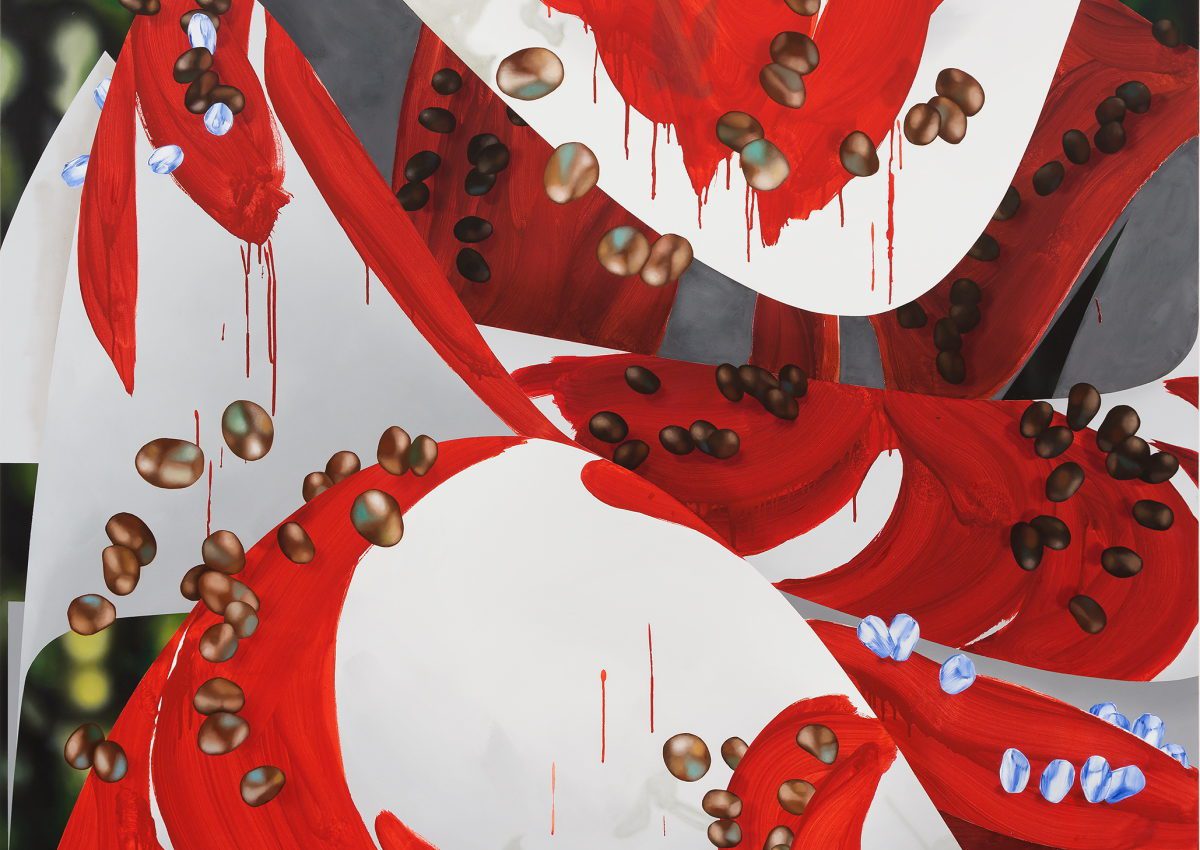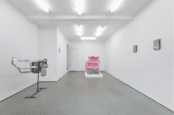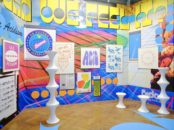Apr 26 - May 28
10:00 - 18:00
Location
Pilar Corrias (Savile Row)
The possibilities of digital art mean that the classic vantages of portrait vs landscape painting can be played with in whole new ways. The slippage between subjective and objective experiences has always been the play of art, what we feel working through what we experience that makes us feel. Vivien Zhang’s work asks questions around geographic representations of the world and suggest cultural motifs that have been synthesised or manipulated, perhaps managed. The precision of her work and the way the viewer can see the curvature of the global shapes gives us worlds to look upon – but where are we situated?
Exhibition Information
Pilar Corrias is pleased to present undo undo undo, Vivien Zhang’s first solo exhibition at Pilar Corrias. Zhang’s work demands a confrontation with the subjective ways that we attribute meaning and value, and the paradoxes of our digital information age. Saturated both in palette and a plethora of possible interpretations, the artist’s latest series of paintings proposes new, alternative ‘landscapes’, albeit not in the conventional art historical sense. Rather, Zhang offers ‘topographies’ that unravel the many, often flawed, means by which we experience our world: geopolitical relationships, social contracts, and personal versus collective narratives.
Each painting is composed by interweaving diverse motifs and visual fragments, often sourced from disparate contexts. These colliding motifs generate a sense of fluctuation and ambivalence, against a backdrop of repetition and certainty.

Vivien Zhang, Geoindex 2, 2022
World map projections, such as the Cahill Butterfly projection in Geogrid 2 (2022) and the interrupted Bonne projection in Geoindex 2 (2022), provide alternative representations of land mass – and the geopolitical hierarchies these may imply – to the commonly-used, but controversial Mercator projection. Other motifs include patterned matrices that simulate 8-bit graphics; ‘manicules’, the drawn hand shapes in margins of early manuscripts that served as highlighters as well as provenance signatures; mathematical shapes such as the Gömböc and the Reuleaux triangle, a curved triangle of constant width that can be seen in Compressed Bloom (2022).
A number of works in the show – Attribution (2022), Attribution Iteration (2022), and Paraboloid (2022) – also reference Sterculia lanceolata, a plant native to southern China. Its name in Chinese directly translates as ‘fake-Sterculia monosperma’ – implying an imitation of a similar species. Zhang is particularly interested in the assignment of qualitative nomenclature and how the acts of attribution and interpretation perpetually reshape our identities and perceptions.
Having spent her formative years across China, Kenya, and Thailand, and now working from a studio in East London, Zhang considers the artwork a site for assemblage. The artist examines the disjunctions she experiences as a ‘third- culture’ citizen (individuals raised in a culture other than that of their parents or the culture of their country of nationality) and as a digital native. She addresses the fragmented, sporadic ways in which we consume and transmit information.
The exhibition will be accompanied by a manifesto in its third variation, written by Zhang. This evolving project began in 2018, with version two published in 2019. Adopting a contradictory tone, the artist’s manifesto abstracts and questions humankind’s current condition – affected by technology and globalisation, our over-reliance on artificial intelligence, automation and computation – and provides insight into the paradoxes, inconsistencies and absurdities crucial to the artist’s research and practice.
Vivien Zhang (b. 1990, Beijing) is a London-based artist who received a BA in Fine Art from the Slade School of Fine Art, London in 2012, and an MA in Painting from the Royal College of Art, London in 2014. She is an Associate Lecturer at Camberwell College of Arts.
Recent solo exhibitions include Lorem Ipsum, Long March Space, Beijing (2021); New Peril, TANK Shanghai, Shanghai (2020); Soft Borders, Lawrie Shabibi, Dubai (2020); Codescape, Long March Space, Beijing (2018); Uzumaki, House of Egorn, Berlin (2018). Her works have been displayed in numerous group exhibitions, including Mixing It Up: Painting Today, Hayward Gallery, London (2021); After Image, Mamoth, London (2020); Echo Chamber, Plus-One Gallery, Antwerp (2019); and Digital Natives (duo exhibition with Thomas van Linge), The RYDER, London (2017). She was the recipient of the Abbey Award 2016-17 at the British School at Rome, the Chadwell Award 2014–15.














